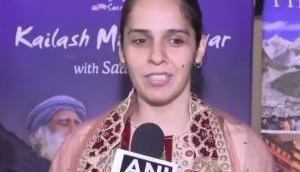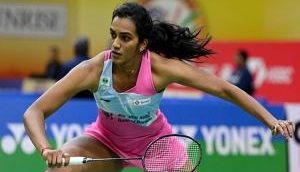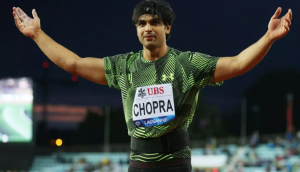
On October 19, the International Cricket Council (ICC) announced the decision to withdraw Pakistani umpire Aleem Dar from India. The decision came hours after members of the Hindu nationalist outfit, the Shiv Sena, barged into the office of Board of Control for Cricket in India (BCCI), protesting against the presence of Pakistan Cricket Board (PCB) chairman Shahryar Khan in Mumbai.
Aleem Dar, who had officiated the first three matches of the India-South Africa ODI series, was scheduled to officiate the next two ODIs in Chennai and Mumbai as well. However, with Shiv Sena activists managing to storm into the BCCI office, the ICC clearly doesn't deem the security fit enough to ensure safety for Aleem Dar.
While Dar's withdrawal came as a major embarrassment for India, more was to come later in the day. Ex-Pakistan cricketers Shoaib Akhtar and Wasim Akram, both of whom are in India as commentators for the India-South Africa series, announced their decision to boycott the last match in Mumbai.
This came as a moral victory for the Shiv Sena, and sheer humiliation for India. To make matters worse, ICC president Zaheer Abbas also hinted at the possibility of Pakistan withdrawing from next year's T20 World Cup in India, in light of the 19 October incident.
A series of disruptions
This isn't the first time that the Shiv Sena has tried to interfere into matters related to sports. Almost two-and-a-half decades ago, they cancelled a bilateral cricket series in India by vandalising the pitch at the Wankhede Stadium. In 1999, Shiv Sena members dug up the Feroz Shah Kotla pitch in Delhi ahead of a Test series between the two neighbouring countries.
In 2006, 2011 and 2012, the outfit threatened to disrupt matches involving the Pakistan cricket team in India.
In 2013, nine Pakistani players in the Hockey India League were forced to return home after Shiv Sena activists disrupted training sessions of the Mumbai franchise.
The party's opposition to the possible involvement of Pakistani cricketers in IPL is well known.
More recently, Shiv Sena forced two players from Pakistan, Wasim Sajjad and Nasir Ali, to sit out games in Maharashtra during the Pro Kabaddi League season. A day before the start of the season, members of the party stormed into the Star Sports office in Mumbai in protest against the involvement of two Pakistani players in the league.
Driving a xenophobic agenda through sports
The Shiv Sena, which is struggling to stay relevant in the modern era, seems to have found a tool to stay in the news by meddling in sporting events.
Over the years, the Shiv Sena has quite openly targeted Pakistani sportspersons to drive a bigoted, xenophobic agenda of its own.
The party is of the view that India should not engage in sports with Pakistan, a nation it sees as an enemy state. It is difficult to see how India stands to gain by preventing Pakistan's sportspersons from earning their bread in India.
An ICC spokesperson termed the Shiv Sena protesters from Monday as "a group of extremists". The Shiv Sena may have trouble arguing against this specific terminology. One need not use weapons to terrorise people; it can be done systematically by creating an atmosphere of fear and hate, something the Shiv Sena seems to excel in.
Helpless authorities
"If Shiv Sena has decided not to allow our players to play in Maharashtra, then we can't do anything about it," a Patna Pirates official had told Catch when the two Pakistani players were barred from playing in the Mumbai leg of the Pro Kabaddi League.
Over the years, the local authorities of the city have failed to rise up to threats issued by Shiv Sena and other Hindu fundamentalist groups. The fact that the country's most popular sports leagues are forced to run at the whims of a far-right political group is a disturbing pattern.
Even the office of the most powerful sports body in the country hasn't managed to escape the hooliganism of Shiv Sainiks. Things are starting to get out of hand now, and it is probably time to clamp down on outfits like the Shiv Sena. If India wants to host large-scale sporting events in future, then it will have to show some spine and keep these fundamentalist groups in check.
Separate jingoism from sports
Coming to the larger question, does India need to engage with Pakistan in sports, particularly in cricket?
The debate in recent times has often revolved around Pakistan's alleged involvement in terror attacks in India. Jingoistic forces in India have often argued against any possible engagement with Pakistan in cricket.
However, there needs to be a clear demarcation between sports and the political relations between India and Pakistan. If there is anything that binds the people of the two countries together, then it is cricket. India today can not afford to let its jingoistic forces hold sports hostage.
A cricket series will not help bring peace to the Indian sub-continent. There will be no change in the stance of the governments in New Delhi or Islamabad. Neither will it imply a change in India's position on terror groups in Pakistan. But the sport will do its part to bridge the gap between the people of the two countries.
At the end of the day, people on both sides of the border are passionate about cricket. To deny these people a chance to watch their countries play each other will be a huge mistake. If anything, it will only strengthen further the resolve of extremist forces like Shiv Sena.







_in_action_250728_300x172.jpg)
![BJP's Kapil Mishra recreates Shankar Mahadevan’s ‘Breathless’ song to highlight Delhi pollution [WATCH] BJP's Kapil Mishra recreates Shankar Mahadevan’s ‘Breathless’ song to highlight Delhi pollution [WATCH]](https://images.catchnews.com/upload/2022/11/03/kapil-mishra_240884_300x172.png)

![Anupam Kher shares pictures of his toned body on 67th birthday [MUST SEE] Anupam Kher shares pictures of his toned body on 67th birthday [MUST SEE]](https://images.catchnews.com/upload/2022/03/07/Anupam_kher_231145_300x172.jpg)




_in_Assams_Dibrugarh_(Photo_257977_1600x1200.jpg)

